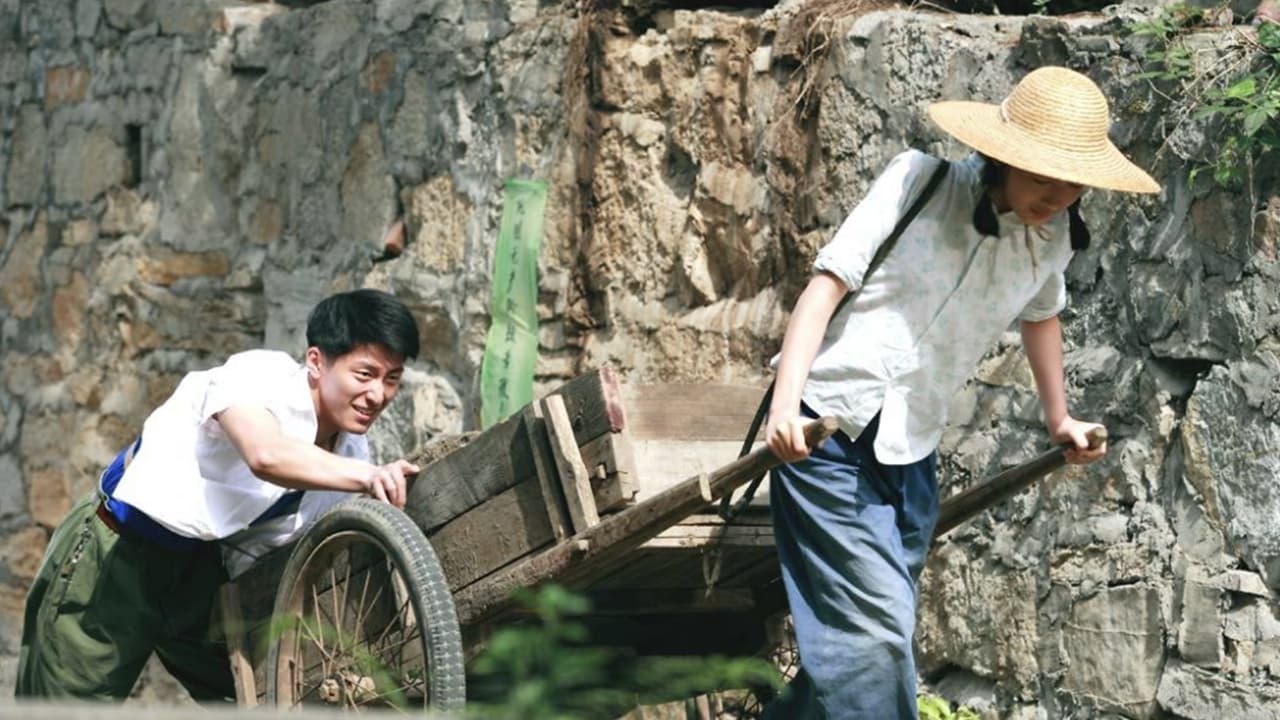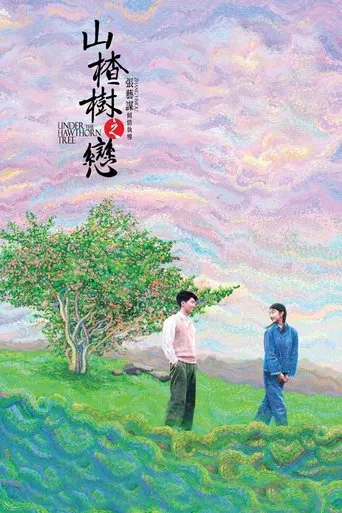

Zhang Yimou reportedly auditioned 10,000 girls in search of untarnished, innocent (old school Chinese) beauty when looking to cast the lead in this film."These young folks are looking worse and worse with each generation. Pretty girls obviously aren't marrying handsome guys these days. They're hooking up with this sugar daddy and that old lonely bachelor with money. No wonder the kids are lacking in the looks department.When you look at any picture of young Chinese women from the 60s and 70s period, you'll almost always have an eager face that radiates innocent beauty looking back at you. This is now a thing of the past, young folks rarely have that innocence about them any more."I read that before seeing this film and it put an awful lot of pressure on the young actress who passed the audition. She's cute, but she's no Gong Li. She's hardly a Zhang Ziyi either, but that may have more to do with the way the film is assembled than anything else.I'm a BIG fan of Zhang Yimou's common people films. I love his nostalgic looks at the past and his thinly veiled commentaries on the Cultural Revolution and cultural change in general, in China. But Zhang seems to have tossed this one off before finishing a proper script. Title cards are used to fill in narrative gaps (red flag) and to allow for fade-to-black wistful shots of the girl biting her lower lip, pouting, and looking like the innocent beauty Zhang craves. I think the need for fade-to-black wistful shots of the girl biting her lower lip and pouting suggests he didn't find it.The film is adapted from a popular mainland novel which was based on a true story set during the Cultural Revolution. There's lots of good stuff and great attention to detail concerning the period, and it satisfied my desire for that. There's a pretty standard love story, complete with terminal disease tugs at your heart strings, plopped on top of it all. And not just a love story, but a Japanese styled "pure love" love story. That part is fine as well. A little Korean style melodrama mixed with some Japanese pure love stylings works for me most of the time. So why didn't I love this movie?Honestly, the title cards bothered me. Not just because the girl bit her lip and pouted going into many of them (which got on my nerves, as well), but because they gave the film an unfinished quality. It's difficult to remain completely faithful to a novel when adapting it for the big screen, and just as voice-over narration can be used successfully to fill in narrative gaps, or it can stick out like a sore thumb, so go the title cards."Sun told Jing that he would be waiting for her upon her return"Sticks out like a sore thumb.To be fair, dancer and senior high school girl, Zhou Dongyu, from Shijiazhuang in Hebei Province, with "eyes that are clear like the mountain springs", is pretty fetching as the young girl who is sent to re-education camp and falls in love with an upwardly mobile land prospector. The film's theme of with whom and when one falls in love being up to the discretion of Communist Party leaders is far more tragic than the terminal disease. Shawn Dou Xiao is outrageously handsome and appealing as the young man who falls in love with her.Under the Hawthorne Tree is delicately shot and filled with wonderful period detail. My final waffling verdict is: It's a beautiful and tragic love story with some distracting blemishes. If Zhang Yimou had spent as much time fleshing out a proper screenplay as he did finding a girl to play the lead character he might have produced another masterpiece. I recommend the film to those who like pure love stories.
... View MoreThe harsh realities of the 1970's cultural revolution in China are moved into soft focus by awesome cinematography, slow moving scenes and superb acting.The story is beautifully told, and although the ending is hinted at from an early point in the movie, it is nevertheless sad and moving.The grey and monotone scenery is punctuated with the bright colors of the volleyball uniforms, the red jacket, and of course the hawthorn berries which are all symbols of the couples' evolving romance.The proximity of the town to the village to the hospital, and the ferry versus the bus was a bit hard to understand. And how Sun managed to spend some much time in the Jing's town.
... View MoreTo many who have been director Zhang Yimou's loyal followers for decades, this film must feel like home coming. While I enjoyed and appreciated his earlier films from Red Sorghum (1987) on, I am no loyal follower, and therefore said "to hell with him" when he degenerated to making trash after trash, culminating in "The curse of the golden flower" (2006) in his vain and naïve hope for Oscar fame. On the other hand, I do welcome the return of Zhang in "Under the hawthorn tree", to pre-5th-generation directors' simplicity and honesty.While adapted from a true story, what this movie shows us is certainly not something unique. More likely, there would have been countless such stories (consider the population of China) in the post-Cultural-Revolution era of the 70s, albeit perhaps with variations in details. Billed as "the cleanest romance in history", "Hawthorn" depicts how two "zhiqings" (young city-born "intellectuals") meet in a customary "sent down" (temporary deployment by school and government to the village to learn from peasants). The romance that budded in the idyllic setting continues back in the city. One obstacle is the girl's "rightist" background which means that she must be particularly careful to avoid being expelled from school (and subsequent teaching career) on any smallest excuse. With this the young lovers can cope, as they can afford to wait. But then, not unlike in some of the contrived and formulaic Korean romances in the 80s, terminal illness sets in. This is basically the simply plot.This movie stands out in its refreshingly simple narration, with sequences preceded by quotations from the original book in a fashion similar to the silent movies. The quotations however give you the sense of actually reading the book. It is moving in the most natural way, without any of the sappy tear-jerking devises that swarm the Korean romances. Cinematography is almost mesmerising. Zhou Dongyu, the 17-year old girl who won the part over thousands of contestants, is without question absolutely deserving – fresh, intelligent and innocent both, and unspoilt by professional training. Shawn Dou is also good, but his character is less developed – pure perfection to the extent of being almost angelic.
... View MoreZhang Yimou returns to a more basic form of film-making in this touching story of innocent love from China's Cutural Revolution era. Very strong performances add substance to an otherwise simple story of young lovers burdened by societal difficulties in their efforts to be together. Ms. Zhou is very good in her role as a young, innocent woman who meets a special boy, Shawn Dou, amid the turbulence of China's revolutionary years. Both girl and boy are sent to the country-side to labor under Mao's crazed design for social re-ordering. The film does not focus so much on the madness of the times as on the fear of being labeled politically incorrect which, coupled with the socially conservative norms of traditional China, serve to encumber the innocent desire to be together. A slow but nicely filmed story of heartache and heartbreak.
... View More